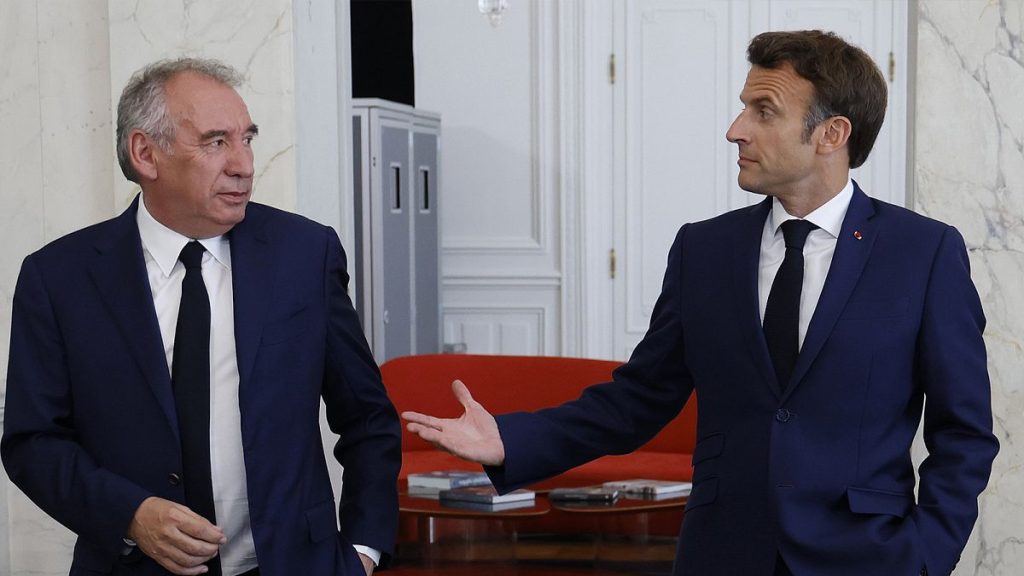François Bayrou’s appointment as France’s new prime minister marks a significant shift in the French political landscape, bringing a seasoned centrist politician to the forefront of a deeply divided parliament. At 73, Bayrou, leader of the Democratic Movement party (MoDem), enjoys a degree of cross-party appeal, even garnering some support from the far-right National Rally (RN). This appointment follows the recent downfall of Michel Barnier’s government, which was ousted by a no-confidence vote stemming from his attempt to bypass parliamentary approval for the 2024 social security budget. President Emmanuel Macron, after a shortened trip to Poland, personally selected Bayrou following deliberations at the Elysée Palace, underscoring the importance of this political maneuver. Bayrou’s immediate challenge lies in constructing a stable government capable of navigating the fragmented legislature and securing parliamentary approval for the upcoming budget.
Bayrou’s selection signals Macron’s attempt to bridge the deep political divides within the National Assembly. The current parliament, a product of snap elections called by Macron, lacks a clear majority and is fractured into three distinct blocs, making the passage of legislation a precarious undertaking. Bayrou’s centrist positioning, coupled with his experience and established political network, makes him a potentially unifying figure capable of garnering support from across the political spectrum. While some members of the far-right have expressed a willingness to give Bayrou a chance, significant opposition remains, particularly from the hard-left France Unbowed (LFI) party, which has already announced its intention to initiate a no-confidence vote against the new prime minister.
The precarious nature of the current political landscape presents significant hurdles for Bayrou. The fragmented parliament, with no party holding a clear majority, makes the formation of a stable government a daunting task. The challenge lies in constructing a cabinet capable of garnering the necessary support to pass critical legislation, most notably the 2025 budget. Bayrou will need to leverage his political acumen and negotiating skills to build alliances and secure the backing of a diverse range of MPs, including those from parties traditionally opposed to Macron’s agenda. The success or failure of Bayrou’s premiership will hinge on his ability to navigate this complex political terrain and forge a workable coalition.
The upcoming 2025 budget represents a critical test for the new government. Securing its approval will require adept negotiation and compromise, as Bayrou will need to address the concerns of various factions within the parliament. The social security budget, a contentious issue that contributed to the downfall of the previous government, will undoubtedly be a focal point of debate. Bayrou will need to carefully balance fiscal responsibility with social welfare considerations, striving to find common ground among competing interests. Failure to pass the budget could trigger further political instability and potentially lead to another no-confidence vote, jeopardizing the government’s stability and undermining Macron’s agenda.
The appointment of Bayrou also carries significant implications for the future direction of French politics. His success in forming a stable and effective government could potentially reshape the political landscape, paving the way for greater cross-party collaboration and potentially mitigating the deep divisions within the National Assembly. Conversely, failure to navigate the current political turbulence could exacerbate existing tensions and further destabilize the government, potentially leading to early elections and further uncertainty. Bayrou’s tenure as prime minister will be a crucial test of his political leadership and a defining moment for French politics.
The coming days and weeks will be crucial for Bayrou as he assembles his cabinet and embarks on the arduous task of governing a deeply divided nation. The composition of the cabinet will provide valuable insights into Bayrou’s strategic approach and his ability to build a broad-based coalition. His initial interactions with parliament, particularly during the budget negotiations, will be closely scrutinized for signs of his leadership style and his capacity to forge consensus. The success or failure of Bayrou’s premiership will not only determine the fate of the current government but also shape the trajectory of French politics in the years to come.














